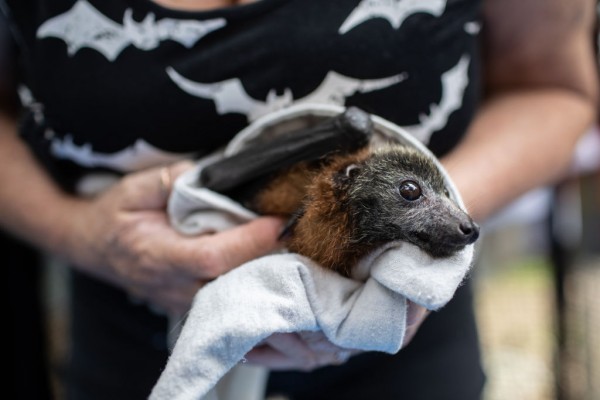The Animal That Holds the Next Pandemic
Alongside the humans who roam the world and inhibit the planet earth, animals are present that give humans different benefits such as food and companion.
Just like humans, animals are part of the environment giving and taking from nature to live and thrive. Apart from the companionship and food animals usually provide, diseases can also come from them harming humans.
Also called Zoonotic diseases, the Centers for Disease Control and Prevention (CDC) defines these diseases to be caused by harmful germs, bacteria, viruses, parasites, and fungi, that can trigger different kinds of ailments in people and animals ranging from mild to serious illness and even death.
Mentioning the background, Fiocruz Institute from Brazil arranges the November Nighttime, an outing of researchers that aims to collect and study viruses present in wild animals such as bats.
ALSO READ: Researchers Develop New Technique for COVID-19 Testing That Does Not Need Scarce Reagents
Why Bats?

A grey headed "flying fox" bat named Barry, his ears burnt off by bushfire, recovers on January 27, 2020 in Bomaderry, Australia. The Shoalhaven Bat Clinic and Sanctuary has received a large number of orphaned babies during this bushfire season, as bat mothers, weakened by drought and habitat devastation are unable to carry their young on their annual migration south.
Medical Xpress reports that bats are thought to be the original or intermediary host for multiple viruses that have procreated recent epidemics such as COVID-19, SARS, MERS, Ebola, Nipah virus, Hendra virus, and Marburg Virus.
ABC News adds that across the 1,400 species across every continent except Antarctica, what these bats have in common are adaptations that allow them to carry viruses that are deadly in humans and livestock while demonstrating minimal manifestations. The news site adds that this means the bats can travel and shed the said viruses instead of being tottered.
The Dawn mentions an interview with Montana State University epidemiologist, Raina Plowright where she states that the secret of the bats lies under the bat's unusual immune systems which according to her is related to their ability to fly. Together with the other bat scientists, the Dawn reports that Plowright believes in the evolutionary tweaks that help bats recover from the stress of flying. She adds that when the bats' metabolic rate rises sixteen-fold, grants them extra protection against pathogens.
Virologist from the Department of Pathology and Molecular medicine of McMaster University Arinjay Banerjee, BSc, MSc, Ph.D., said in a statement published in Medical Xpress that bats seem to have evolved collateral of flight resistance to deal with some of the wickedest viruses that are known by science.
READ ALSO: Pfizer COVID-19 Vaccine: What Does it Contain Inside?
November Nighttime goals
With the rise of the pandemic, ABC News stresses that in a highly connected world, an outbreak of a disease in one place endangers the entirety of the planet just like what happened in the COVID-19 pandemic. They add that the team of Brazilian researchers aims to minimize the risk of a second pandemic this century.
The Dawn also exclaims that the Brazilian researchers also aim to identify viruses that can be lethal to humans, and utilize the collected information to organize and develop plans to stop them from infecting people, and foresee the next potential global disease outbreak before it gets started.
With the rise of the COVID-19 pandemic, preventive measures like the November Nighttime is a vital step in preparing the nation for possible virus outbreaks in the near future. Plowright adds in Medical Xpress that in order to potentially reverse the movement of bats, their team is studying to restore the bat's original habitat, to lessen the contact of wild animals and humans to prevent further zoonotic diseases cause global pandemics.
READ NEXT: Severe COVID-19 Can Stimulate an Immune Response Akin to Lupus
Check out more news and information on the COVID-19 on MD News Daily.
Dec 14, 2020 01:00 PM EST





